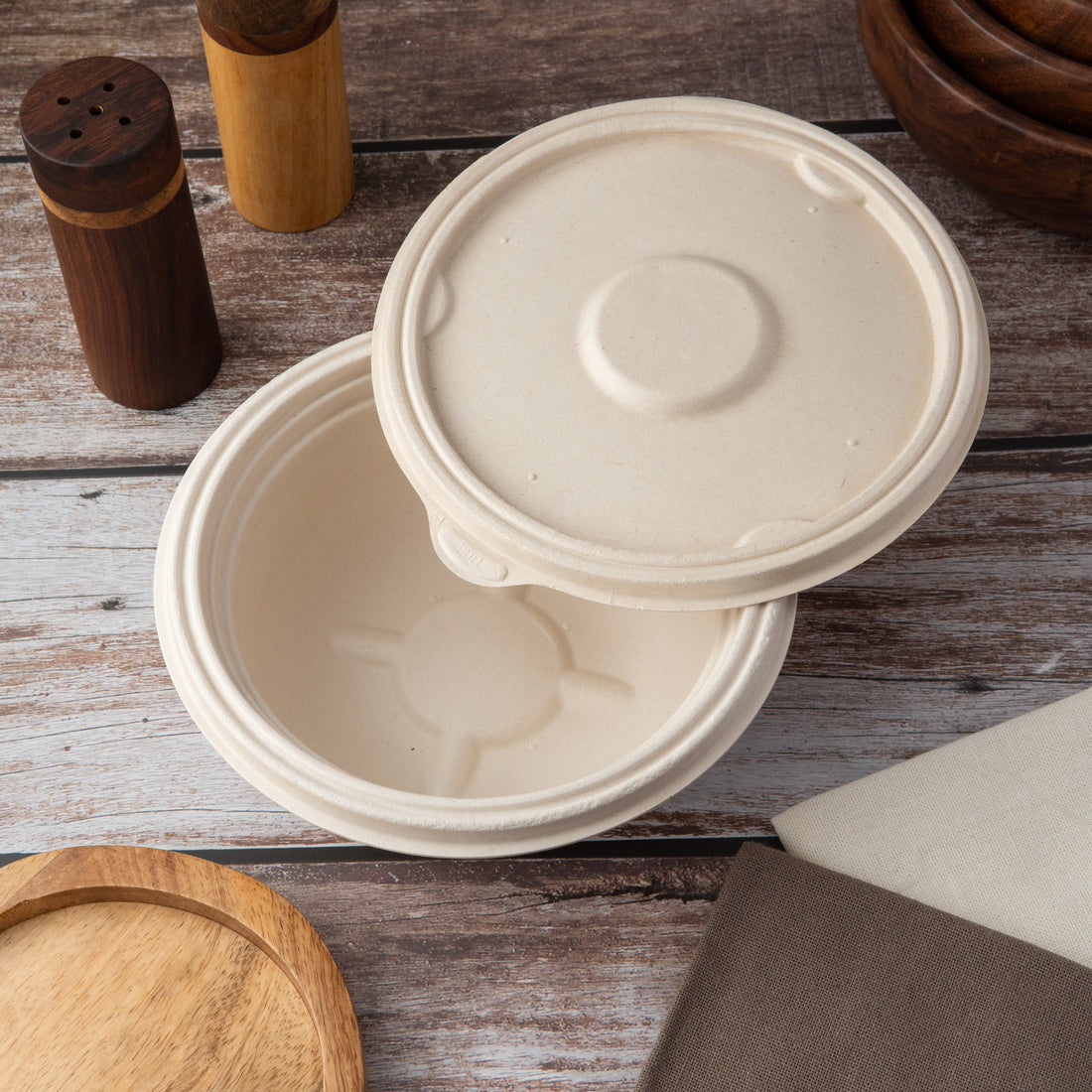
Molded Fiber vs Plastic: The Ultimate Showdown For India’s Greener Tomorrow
Primo by FibmoldShare this article
Packaging Choices Power India’s Future
Every meal delivery, takeaway box, or coffee cup you hold is more than just packaging—it’s a reflection of India’s environmental choices. As the government intensifies its crackdown on single-use plastics and eco-friendly living becomes mainstream, the debate between molded fibre vs plastic has become central to how Indian families, restaurants, and brands envision a cleaner, greener Bharat.
So, which is the smarter choice for a sustainable India? Let’s break it down.
1: What Exactly is Molded Fibre Packaging?
Molded fibre packaging is crafted from natural, renewable resources like recycled paper, cardboard, and agro-waste (e.g., sugarcane bagasse). Brands like Primo by Fibmold offer a range of products—Anti-leak food containers, Food delivery containers with lids, and even Plastic-free lids for beverage cups, all made from plant-based, Compostable packaging materials.
Highlight Features:
-
Compostable packaging: Decomposes within 90–180 days, even at home.
-
Manufactured for Microwave-safe food containers transport and oven-safe up to 350°F.
-
Toxin-free and health safe, 100 percent Plastic-free lids and tableware.
-
Significantly reducing the methane landfill impact of conventional plastic packaging.
2: The Environmental Impact – Numbers Don’t Lie
-
In 2023, India generated around 3.4 million tonnes of plastic waste, of which more than 40 percent was not collected or recycled, releasing toxins into rivers and soil.
-
Molded fibre packaging, on the other hand, is fully Compostable packaging and biodegradable, drastically reducing the waste burden and offering a true end-of-life solution.
-
The Indian molded pulp packaging market saw a valuation of $251.9million in 2023 and is growing at a 9.8% CAGR, fueled by regulations and rising public demand for Eco-friendly food containers.
Life Cycle Analysis shows Molded Fibre products consistently have a lower environmental impact than plastics, owing to renewable input and compostability.
Key Point 3: Regulations Fuel the Shift; FSSAI, India’s Ban & Brand Response
-
Since 2022, India has phased out most single-use plastics under the Ministry of Environment & Forests.
-
The FSSAI’s 2025 packaging guidelines require restaurants and brands to adopt safe, sustainable packaging solutions.
Brand response:
-
BigBasket has significantly reduced single-use plastic in its fresh produce packaging.
-
Amazon India uses molded fibre extensively in shipments to stay compliant with environmental regulations and win customer trust.
Key Point 4: Cost, Versatility, and Performance for Indian Tastes
-
Just as effective are Molded Fibre containers, which are oil-resistant containers, and could be frozen or microwaved, and are sturdy enough to hold biryani or gravies.
-
Their prices are suitable to ascribe to the majority of restaurants and brands because of the cheapness of raw materials and processing costs in India.
-
Flexible forms: Round bowls with lid, Rectangular container with lid, single-wall cups, and so on, encompassing the whole process of the delivery and the dinner experience.
Comparison Table: Molded Fiber vs. Plastic
|
Feature |
Molded Fibre |
Plastic |
|
Source |
Renewable, plant-based |
Fossil fuel-derived |
|
End-of-life |
Compostable/biodegradable |
Landfill, incineration, hard to recycle |
|
Safety |
PFAS/BPA-free, non-toxic |
Possible leaching of chemicals |
|
Compliance |
FSSAI, Indian green standards |
Increasingly regulated/banned |
|
Food compatibility |
Microwave safe containers & oven safe |
Varied; some not heat safe |
|
Versatility |
Rectangular container with lid, cups |
Yes, but not eco-friendly |
|
Public Perception |
Preferred for eco-conscious consumers |
Increasing negative sentiment |
Real-World Impact: The Primo by Fibmold Example
-
Primo’s Anti-leak food containers transform not just takeaway but also street food, high-end catering, and daily dining—all plastic-free.
-
Manufacture with a community posture: provides jobs to rural women, a sustainable supply chain.
-
They include Bagasse cup lids, Compostable cup lids, Reusable containers for food, and others. All touchpoints are Sustainable Packaging!
Why This Matters: Beyond Greenwashing
Not all “eco” solutions are real. Many bioplastics or oxo-degradable plastics are misleading, leaving behind harmful microplastics.
Certified molded fibre packaging like Primo’s is rigorously FSSAI-tested, fully compostable, and toxin-free—making it the only genuine path toward a plastic-free India.
With every eco-friendly container you hold, you’re not just eating safely—you’re shaping India’s cleaner, healthier future.
Stay Connected: Join The Packaging Evolution
For the latest innovations, brand news, and deals, follow Primo:
-
Instagram: @primopack for new launches, behind-the-scenes, and eco-tips
-
Facebook: Network for industry updates, sustainability news, and more
-
Youtube: Get insider insights, trend analysis, and success stories from the pros.
Conclusion: Choose Fiber, Change India
The choice is clear:
-
Healthier for people
-
Safer for the planet
-
Compliant with Indian laws
Next time you order food, shop online, or launch a business—choose molded fibre, not plastic.
Make the difference. Sustain it with Primo by Fibmold.
